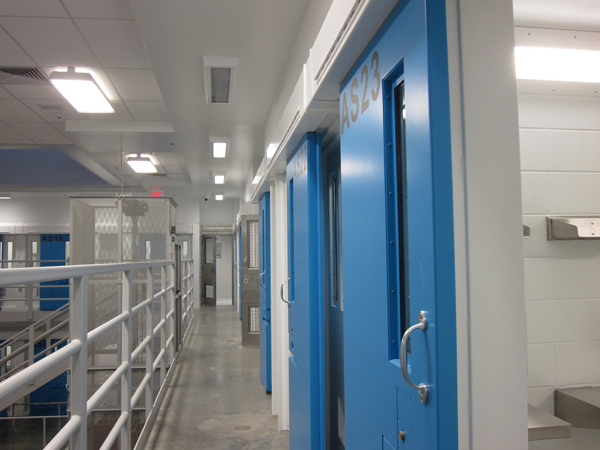
The amount of fentanyl it takes to cause an overdose is 2 milligrams, the size of about six grains of salt, and enough fentanyl to kill about 500 people could fit inside a large pill capsule. That makes keeping the powerful drug out of jails and prisons in the state tricky.
Like the rest of Alaska, the Department of Corrections, or DOC, has seen overdoses rise, said Adam Rutherford, the DOC’s health director. He said they know the drug is getting in.
“When you add fentanyl to the mix, and how deadly fentanyl is at very, very, very low doses, I think that created challenges that we weren’t expecting,” Rutherford said.
Rutherford said thankfully, staff have been able to reverse overdoses with Narcan and save lives on a weekly basis. So unlike the rest of the state, he says, the facilities haven’t seen big increases in overdose deaths.
DOC staff have also found small amounts of fentanyl in mailed photographs and counterfeit Amazon packages, according to Arnaldo Hernandez, superintendent for the Anchorage Correctional Center. He said fentanyl was also getting in through legal mail, such as letters from attorneys. That mail is constitutionally protected so in the past, prison staff didn’t open it. But Hernandez said now that’s changed.
“We’ve instituted a process where we copy the legal mail, hand them the copy, because that way they can’t access the contraband that’s laced on them, in the seams or in the pages,” Hernandez said.
But Megan Edge from American Civil Liberties Union Alaska is concerned about those changes. She said people have a right to privileged communication with their attorney.
“Anytime a correctional officer or a staff member is looking at that policy, they’re giving an opportunity to that staff member to read someone’s private legal paperwork,” Edge said.
She said there have been other issues like staff failing to copy the backs of two-sided correspondence. She said the department doesn’t keep track of how many attorney letters had contraband fentanyl in them. And she said if facilities are truly concerned with keeping fentanyl out, they should be looking at other ways it’s brought in, like by staff.
“There have been correctional staff members in the last couple of years that have been criminally charged with bringing contraband into facilities,” Edge said.
In the past few years, several correctional officers have been charged with or found guilty of trafficking drugs in the state’s facilities. A former guard in the Anchorage Correctional Center was allegedly paid between $1000 and $3000 each time he brought drugs in, according to the Anchorage Daily News.
Edge said other states use systems that protect attorney-client confidentiality and keep fentanyl out of prisons, like encrypted email for protected correspondence. And she said she knows the DOC and other groups in the state are working toward introducing technology like that to jails and prisons in Alaska.
Source
#ACLU #raises #concerns #Alaska #Department #Corrections #works #fentanyl #jails #prisons
